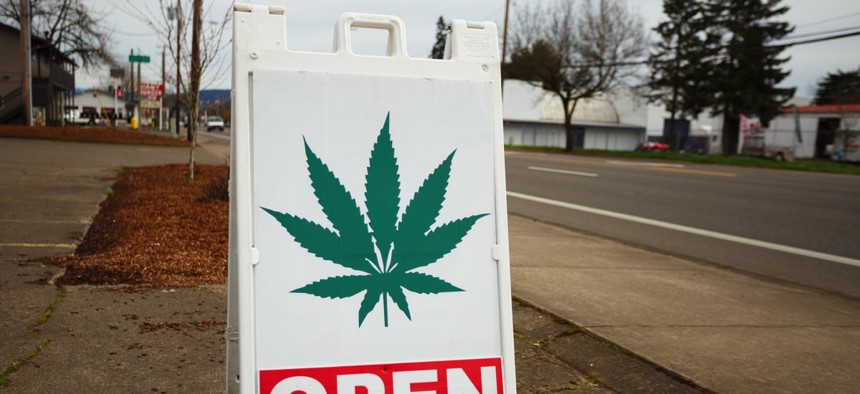How One California County Is Trying to Control Cannabis

Using ‘proof of origin’ stamps, medical marijuana is now being tracked from cultivation to sale.
Humboldt County in Northern California is now tracking the movement of medical cannabis through every step in the supply chain and tracing the product’s origin.
The “track and trace” pilot program, which kicked off on Monday, runs through November and is meant to guarantee compliance with state and local public health and safety regulations, as well as protect Humboldt’s artisanal brand of medical cannabis—per the county’s Medical Marijuana Land Use Ordinance.
With the passage of California’s Medical Marijuana Safety and Regulations Act last fall, counties are required to identify cannabis by its county of origin, but that requires infrastructure following the drug between local licenses from harvest to sale.
“While the state will be required to create its own track and trace program, that program will be designed to meet the needs of the state and not necessarily those of the county,” said Humboldt County Agricultural Commissioner Jeff Dolf in the announcement. “A local track-and-trace program is critical to demonstrate that the county’s medical cannabis regulatory program incorporates enforcement principles important to local and federal law enforcement including preventing distribution of cannabis to minors, preventing the diversion of cannabis to other states, preventing cannabis revenue from supporting criminal enterprises and preventing the growing of cannabis on public lands.”

Lausanne, Switzerland-based government security company SICPA developed the program at no cost to the county, using counterfeit-resistant, encrypted tax stamps and information-based security for cannabis control.
The stamps allow for data collection and business intelligence linking agencies with dispensaries. After harvesting, cultivators apply stamps with QR codes—containing product information on the size, strain and grower—to the packaging. Passing from cultivator to manufacturer to distributor to dispensary the stamps are scanned.
.jpeg)
Patients with the corresponding smartphone app can scan the stamps to gauge product authenticity and get test results, as well as information on pesticides used and organic growing practices.
Several local businesses have enrolled in the pilot program.
Dave Nyczepir is a News Editor at Government Executive’s Route Fifty and is based in Washington D.C.
NEXT STORY: Do Volunteer Drivers Deserve Protection From Lawsuits?






